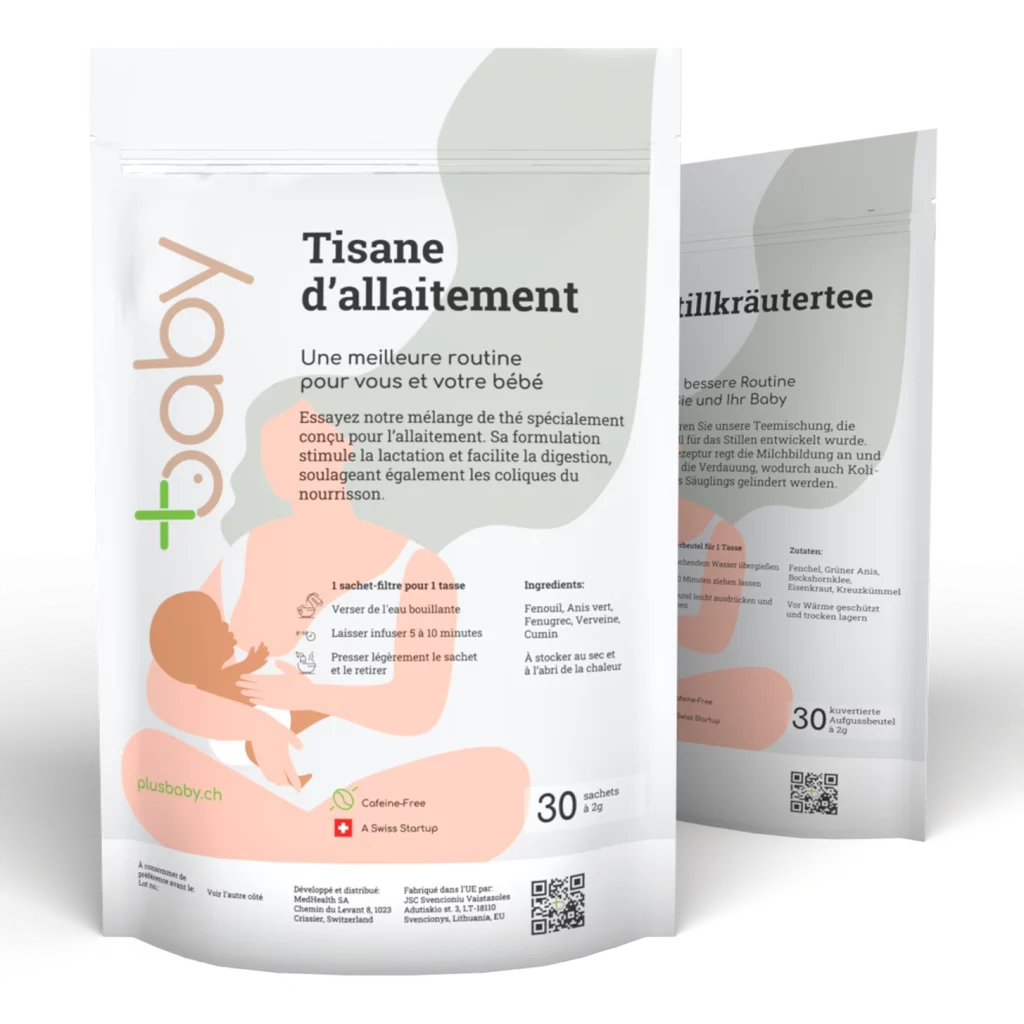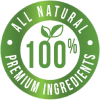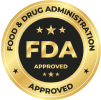🎁Recevez Une Boîte GRATUITE d'Oméga 3 Vegan DHA Pour Toute Commande De Plus De 50 CHF - Visitez Notre Shop !
3 for the price of 2! 🎁 Free delivery on all orders – Visit Our Shop!
Pregnancy is an extraordinary time marked by unique transformations and challenges, not least morning sickness. For many pregnant women, finding natural solutions to relieve this discomfort is a priority. Anti-nausea herbal teas offer a gentle, natural approach that is in harmony with the body’s specific needs during pregnancy. This text will explore the various safe and effective herbal tea options, their key ingredients such as ginger and peppermint, and provide practical advice on how to incorporate them serenely into the daily routine of expectant mothers.

During pregnancy, choosing safe herbal teas is crucial to the health of both mother and baby. Options such as ginger, peppermint and chamomile are favoured for their digestive and soothing properties. Ginger, known for its anti-nausea properties, is particularly beneficial in cases of morning sickness. Peppermint, with its refreshing effect, helps relieve upset stomachs and bloating. Chamomile, known for its calming properties, is ideal for soothing the digestive system.
It is essential to avoid caffeine, which is present in many teas and coffees, as it can affect blood circulation and the foetus’s heart rate. Similarly, certain herbs such as sage or rosemary, often used in herbal teas, may be contraindicated because of their effects on hormones or blood pressure. Pregnant women should opt for herbal teas specially designed for pregnancy, which exclude these potentially harmful ingredients.
In conclusion, choosing the right herbal teas during pregnancy is essential to ensure the safety and well-being of both mother and baby. Herbal teas made with ginger, peppermint and chamomile offer safe, natural alternatives for relieving digestive problems and nausea, while avoiding the risks associated with caffeine and certain medicinal herbs.

Morning sickness during pregnancy is a complex phenomenon, influenced by various physiological and hormonal factors. One of the main causes is hormonal imbalance, in particular increased levels of the hormone HCG (human chorionic gonadotropin), produced after conception. This hormone, which is necessary for maintaining pregnancy, is often associated with nausea and vomiting, particularly during the first trimester.
Hormonal changes can also affect the digestive system, slowing down digestion and increasing the risk of nausea. The stomach and intestines, influenced by these hormones, can become more sensitive, leading to feelings of discomfort after eating. In addition, increased sensitivity to smells, common during pregnancy, can trigger nausea in response to certain aromas or foods.
Gastrointestinal disorders, such as gastro-oesophageal reflux or bloating, can also contribute to morning sickness. These problems are exacerbated by anatomical and physiological changes during pregnancy, such as the increase in intra-abdominal pressure due to the growth of the uterus.
In addition, psychological factors such as stress or anxiety can aggravate nausea. Stress management and a balanced diet can help reduce these symptoms.
In addition, many pregnant women experience increased sensitivity to smells and tastes, which can trigger nausea.
In short, morning sickness is caused by a complex combination of hormonal, digestive and psychological factors. Understanding these mechanisms enables you to adopt appropriate strategies to manage them, such as adopting a suitable diet, relaxation, and using natural remedies such as certain herbal teas specifically designed for pregnancy.

Pregnancy is a period of profound physiological changes, often accompanied by morning sickness. Althoughthese inconveniences are frequent, they can be alleviated through dietary and behavioural measures and the use of natural remedies.
Regulation of blood sugar levels is essential to prevent nausea. A balanced diet, rich in nutrients and low in heavy fats and fast sugars, is recommended. Small portions eaten regularly throughout the day help to keep blood sugar levels stable, reducing the risk of nausea. Foods rich in fibre and protein promote slow, stable digestion, contributing to greater gastric comfort.
Fatigue and stress often exacerbate symptoms of nausea. Adequate rest and good sleep hygiene are essential. Relaxation techniques, such as prenatal yoga or meditation, can help manage stress and improve sleep quality.
Medicinal herbal teas, particularly those made with ginger or peppermint, are renowned for their anti-nausea properties. Ginger, a natural antiemetic, helps to soothe the stomach and prevent feelings of discomfort. Peppermint, meanwhile, helps to relax stomach muscles and aid digestion. We recommend that you consume these herbal teas in the recommended doses and after consulting a health professional to make sure they are safe.
Adequate hydration is essential for digestive well-being. Drinking liquids in small quantities throughout the day can help prevent dehydration, which is often linked to nausea. It’s also advisable to avoid spicy, acidic or strong-smelling foods, which can cause nausea.
In short, morning sickness during pregnancy can be alleviated by a combination of a balanced, portioned diet, sufficient rest, the use of natural remedies and good hydration. However, it is essential to consult a health professional before making any significant changes to your diet or lifestyle.
Caffeine and theine consumption should be limited during pregnancy. These stimulants can cross the placental barrier and affect the foetus. Caffeine-free alternatives, such as herbal teas, are recommended. It is advisable to choose herbal teas that are specific to pregnancy and free from certain potentially harmful herbs.
Studies of the effects of caffeine consumption during pregnancy have revealed significant links with several negative pregnancy outcomes. A literature review examined 48 original studies and meta-analyses on maternal caffeine consumption published over the last two decades. The review found that of 42 sets of results, 32 indicated an increased risk associated with caffeine and 10 suggested inconclusive or non-existent associations. A caffeine-related increased risk was reported with moderate to elevated consistency for all pregnancy outcomes except preterm birth. Among 11 studies reporting 17 meta-analyses, unanimity was found among 14 analyses indicating that maternal caffeine intake is associated with an increased risk of miscarriage, stillbirth, low birth weight and/or low weight for gestational age, and acute childhood leukaemia.
Another review looked specifically at the impact of maternal caffeine consumption on the foetus. This review indicates that caffeine consumption during pregnancy has notable effects on human foetal development, increasing foetal respiration rates and heart rate, but possibly leading to reduced growth and lower birth weight. Although caffeine does not affect the length of gestation or cause high blood pressure, it does increase uterine contractions, which could potentially lead to miscarriage. In some cases, it even contributes to the development of pre-eclampsia in the later stages of pregnancy. However, the data on the association between caffeine consumption and the risk of birth defects remain inconclusive.
These studies suggest that caffeine consumption during pregnancy may be associated with risks for foetal development and pregnancy outcomes. Women who are pregnant or considering pregnancy are advised to avoid caffeine, taking into account current recommendations based on available scientific evidence.
Caffeine, found in coffee, certain teas and soft drinks, can present risks during pregnancy. It has been associated with an increased risk of miscarriage and low birth weight. Medical authorities recommend limiting caffeine consumption to around 200 mg per day during pregnancy. It is essential to monitor caffeine intake from all sources to stay within this recommended limit. Opting for caffeine-free teas is a sensible alternative to avoid the potential risks associated with caffeine.
Caffeine is a stimulant found in many drinks and foods, such as coffee, tea, energy drinks, soft drinks and chocolate. Although caffeine can have stimulating effects on adults, it can pose potential risks for pregnancy and breastfeeding because of its effects on the foetus and the infant.
Peppermint is renowned for its carminative and antispasmodic properties, which help relieve stomach upset and nausea. It works by relaxing the smooth muscles of the stomach, reducing spasms and bloating. Its essential oil contains menthol, a component that helps to calm the stomach. It contains no caffeine or theine.
Ginger, known for its digestive and anti-nausea properties, is an effective natural remedy for morning sickness. It contains compounds such as gingerol and shogaol, which have positive effects on the digestive system and can help reduce nausea. Incorporating fresh ginger into the diet, for example in the form of herbal tea or added to dishes, is a sure way to reap its benefits. Ginger is caffeine- and theine-free.
Plusbaby’s anti-nausea herbal tea has been specially formulated to alleviate the symptoms of morning sickness and digestive problems during pregnancy.
Morning sickness and digestive problems are common during pregnancy, and this tea offers a natural solution to relieve them. It contains a blend of medicinal herbs, including chopped ginger root and peppermint leaves, known for their soothing properties on the stomach.
Like Plusbaby’s breastfeeding tea, Plusbaby’s anti-nausea tea is caffeine-free, making it safe for use during pregnancy. It can be drunk up to four cups a day, providing welcome relief for expectant mums.
Use: To prepare this herbal tea, pour boiling water over a sachet and leave to infuse for 5 to 10 minutes. We recommend drinking this tea as soon as you feel nausea coming on, and also as a preventative measure.
As well as peppermint and ginger, other herbal teas may be beneficial and safe for pregnant women:
Chamomile: Soothing and relaxing, it helps relieve digestive problems and nausea. However, it should be used in moderation.
Fennel: Known for its digestive properties, fennel can reduce bloating and gas.
Rooibos: Caffeine-free, rooibos is rich in antioxidants and can help calm nausea.
Linden: Soothing and relaxing, it is often used to calm stress and promote restful sleep.
Verbena: Renowned for its calming properties on the nervous system and can help relieve nausea.
Plusbaby’s breastfeeding tea, specially designed to aid digestion and relieve colic in infants, contains ingredients such as fennel and verbena. Fennel is appreciated for its digestive properties, helping to reduce bloating and gas. Vervain is known for its calming effects on the nervous system. Together, these ingredients form an effective combination to support both mum and baby during the breastfeeding period.

In conclusion, although pregnancy is a time of great joy, it can also be accompanied by challenges such as morning sickness and digestive problems. Fortunately, there are safe, natural solutions. Herbal teas, with their carefully selected ingredients such as ginger, peppermint and other beneficial herbs, offer natural and effective relief from these discomforts.
Plusbaby, aware of the specific needs of pregnant women, has developed a range of herbal teas specially formulated for pregnancy. Our Anti-Nausea Herbal Tea is a perfect example of our commitment to providing natural, safe and effective products for mums-to-be. Each sachet is designed to offer gentle and effective relief, without the risks associated with caffeine or other potentially harmful ingredients.
We invite all pregnant women to discover our Plusbaby Anti-Nausea Herbal Tea, as well as our full range of products for this wonderful time of life. Visit our website for more information and to order our products, designed to support you throughout your pregnancy and beyond. At Plusbaby, we are dedicated to supporting you and your baby’s well-being with our natural, quality products.




PlusBaby resources are intended to provide general information and are not a substitute for professional medical advice, diagnosis or treatment.
Stay connected with Plusbaby. Sign up for a free e-book to understand your menstrual cycle and help you identify your most fertile period. You’ll also get early access to offers.
Who we are



@ 2025 by Plusbaby
@ 2025 by Plusbaby
